It is five years since the military in Myanmar launched a ferocious crackdown against the country's Rohingya Muslim population, sparking a huge exodus of refugees and charges of genocide against the Myanmar state.
Early in the morning of 25 August 2017, a then little-known Rohingya militant group called the Arakan Rohingya Salvation Army (ARSA) launched a series of co-ordinated attacks on police posts in Myanmar's coastal Rakhine state, killing at least a dozen officers.
The Myanmar army quickly retaliated, killing what is said were 400 militants, although opponents say the majority of those who died were civilians.
At least 1,000 people were killed in the first two weeks of that military operation alone, according to the United Nations.
By early the following month, more than 120,000 Rohingya people had been forced to flee their villages into neighbouring Bangladesh amidst mounting violence, overwhelming the country's poorly equipped refugee camps, which were already struggling to cope with at least 200,000 refugees from previous waves of violence.
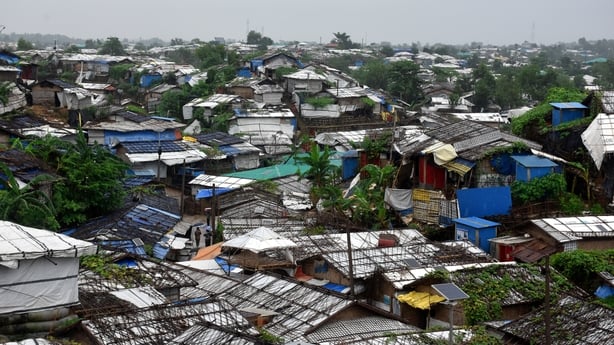
Five years on, with refugee numbers having swelled to more than a million, aid agencies are warning that the crisis has reached a dangerous tipping point, with a whole generation of refugees potentially never returning home.
The Norwegian Refugee Council has accused international leaders of failing to chart a way forward.
"From what I’m seeing on the ground, the Rohingya refugee community in Bangladesh is almost at the point of no return; they must be helped out of displacement now or it will be too late," warned Jan Egeland Secretary General of the NRC who is currently on a visit to Bangladesh.
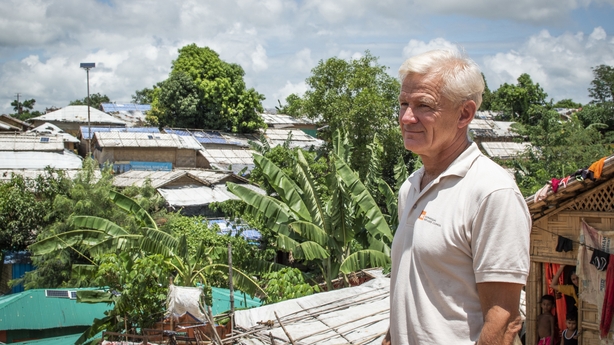
"Families I have spoken with have witnessed the worst of humanity. If this cruel limbo continues the reality of them ever returning home to Myanmar is extinguished," he said.
Today is five years since the Rohingya were forced out of their ancestral land. Cows graze where villages once stood. History will punish us if we do not make safe, dignified & voluntary returns possible. The time to act is now.https://t.co/1zv5cvuvNK
— Jan Egeland (@NRC_Egeland) August 25, 2022
Since fleeing the deadly violence in Myanmar in August 2017, one million Rohingya refugees are still completely aid dependent in Bangladesh, which is already one of the world’s poorest countries.
The Rohingya people are spread across 31 settlements there, which are collectively referred to as the largest refugee camp in the world.
Read More:
Who are the Rohingya?
Myanmar committed genocide against Rohingya, says US
Some 450,000 of the refugee population are children, who the NRC warn are at grave risk of becoming a "lost generation".
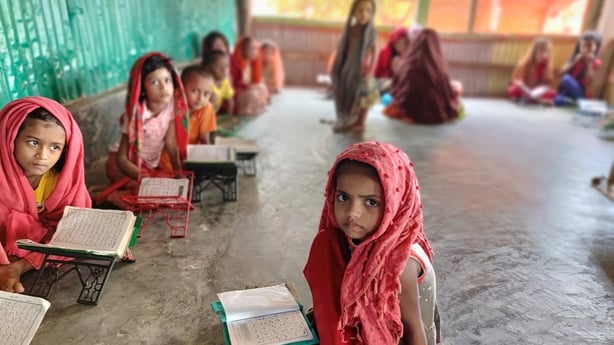
A recent assessment carried out by NRC on 317 refugee youths found that 95% were unemployed, and as result suffering from high levels of anxiety and stress.
"I spoke with young refugees with their backs against the wall, struggling under mountains of debt with no jobs and no opportunities. They are tired of waiting for the world to act, and tired of broken promises and hopelessness," said Mr Egeland.
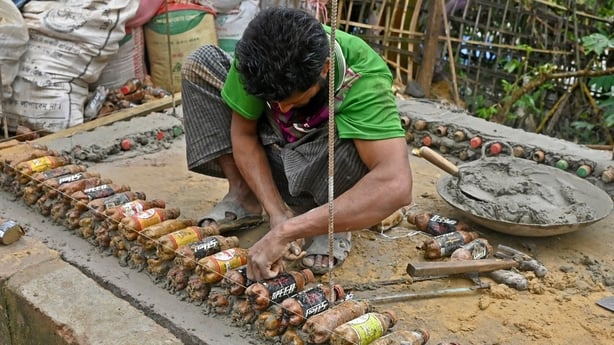
Some refugees in southern Bangladesh have become so desperate that they have attempted to escape by boat. The most frequent route is to Malaysia, but many lives have been lost in drowning incidents, when boats sink at sea.
Mohammad Taher, who lived with his 35-year-old mother Hasina Begum and elder brother, did not have any access to work in the Balukhali refugee camp. His family said he set sail with his friends and has been missing at sea since mid-June.
"A few months ago, my younger brother went missing, later we came to know that he tried to go to another country (Malaysia) by boat with his friends," says his brother, 18-year-old Mohammad Zaber, who stayed behind at the camp.
"One of our relatives were also on the same boat but he managed to escape, and he said my brother went missing ... in the sea," he explained.
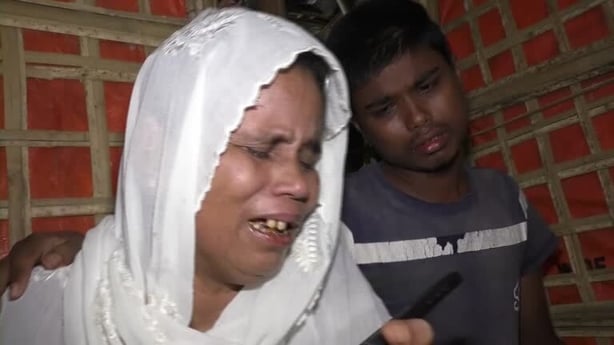
There has also been a string of murders inside the vast refugee camps, with Rohingya sources telling the AFP news agency that ARSA is behind some of the shootings. It has also been accused of running narcotics, murdering political opponents and instilling a climate of fear in the camps.
Only a quarter of the funding needed to help refugees in the camps, including the largest one - Cox’s Bazar - has been received so far this year, according to the NRC. It says only a renewed international focus on the crisis now will make a difference:
"I am dismayed by the international leadership vacuum to the Rohingya crisis, outside of Bangladesh.
"Rather than unlocking the political deadlock to finding lasting solutions for these people, leaders are competing in a race to the bottom - pushing back, forcibly repatriating people seeking safety and limiting resettlement and other migration options.
"China and ASEAN member states should organise a UN-ASEAN-China leadership summit to chart a course forward to resolve the crisis," Mr Egeland said.
The United Nations refugee agency, the UNHCR, called this week for donors not to forget the crisis. UN Special Envoy on Myanmar Noeleen Heyzer visited refugee camps in Cox's Bazar as part of a four-day visit to Bangladesh.
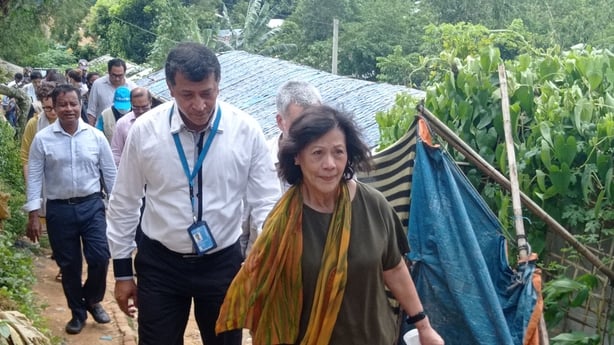
Despite the squalid conditions there, the refugees cannot return to Myanmar, where they are denied citizenship and other rights.
The UN also says conditions are not right for their return.
UNHCR spokeswoman Regina de la Portilla said: "Most refugees we talk to, they want to return home but only when it's safe and proper to do so. When they can return and know that their rights will be ensured…. Mainly it will be access to documentation; it will be about access to rights, to services including education, freedom of movement and being recognised as citizens of a country."
However, as the humanitarian situation inside Myanmar itself continues to deteriorate, there is almost no prospect of any return.
On 1 February last year, Myanmar’s military seized power, ousting the civilian government and later waging a bloody crackdown on dissent.
Over one million people in Myanmar are already internally displaced due to ongoing violence there.
Human Rights Watch estimates that a further 600,000 Rohingya people remain in Myanmar under the oppressive rule.
The group says this five-year anniversary should be used as an opportunity to seek justice for the Rohingya people.
"Governments should mark the five-year anniversary of the devastating campaign against the Rohingya with a coordinated international strategy for accountability and justice that draws on Rohingya input," said acting Asia diretor at HRW Elaine Pearson.
"Donors should support Rohingya refugees to study and work freely and safely so they can build independent and self-reliant futures."
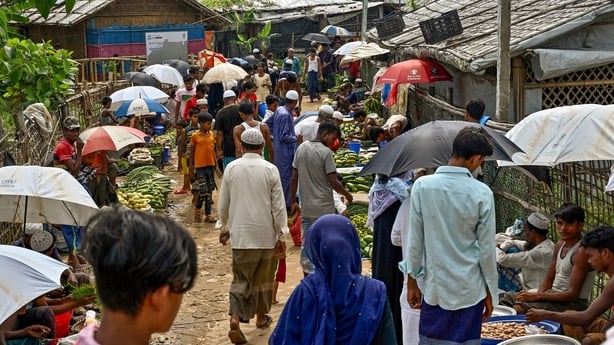
Since August 2017, Human Rights Watch said it has interviewed hundreds of Rohingya people in Bangladesh who fled the Myanmar military’s atrocities.
HRW said these people described incidents in which soldiers systematically killed and raped villagers before torching homes in hundreds of villages.
"Myanmar authorities brutalized us," said one of those interviewed, 30-year-old Abdul Halim, now a refugee in Bangladesh.
"They burned down our houses, raped our mothers and sisters, burned our children. We took shelter in Bangladesh to escape that brutality. Now I've been living in Kutupalong camp for five years."
Abdul carried his very ill mother on his back when they fled Myanmar in 2017. She died shortly after reaching Bangladesh.
On 21 March this year, the United States officially declared that the violence which erupted in Rakine state five years ago this month, amounted to genocide.
It said there was clear evidence of an attempt to "destroy" the Rohingya people.
Last month The Gambia filed its case against Myanmar at the International Court of Justice, taking a long battle for justice and accountability, one step further.
Additional reporting AFP, Reuters







